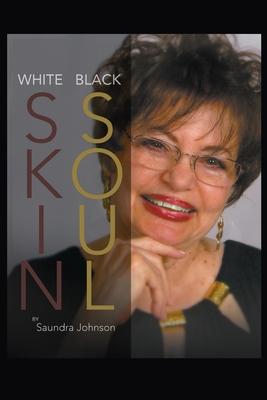Saundra Johnson is a white-skinned black woman who was born in Little Rock, Arkansas, in l943 during the harsh period of Jim Crow. However, she and other white-skinned family members identified as black and embraced its rich heritage during a period of thriving black communities and businesses. Although having light/white skin had some privileges, the first day that Saundra arrived at Central High School in 1959, it became apparent that her color had no immunity when confronting hardcore racism. She describes in White Skin-Black Soul, her life experiences and the emotions and confusions that it illicit when mistaken for white. She also focuses on family and family stories that are lighthearted and humorous, while others are sorrowful and tragic. Saundra concludes her journey with her opinion of what has changed over seventy-five years and what has stayed the same with optimism that White Skin-Black Soul will provide insight and knowledge for the younger and future generations. Although family members may differ in some areas of politics, social issues, and religion, she still aims for a collective consciousness of the importance of fighting on the side of "justice and integrity" for all people and the power of being a "free and critical thinker," living in a democratic society.

Saundra Johnson is a white-skinned black woman who was born in Little Rock, Arkansas, in l943 during the harsh period of Jim Crow. However, she and other white-skinned family members identified as black and embraced its rich heritage during a period of thriving black communities and businesses. Although having light/white skin had some privileges, the first day that Saundra arrived at Central High School in 1959, it became apparent that her color had no immunity when confronting hardcore racism. She describes in White Skin-Black Soul, her life experiences and the emotions and confusions that it illicit when mistaken for white. She also focuses on family and family stories that are lighthearted and humorous, while others are sorrowful and tragic. Saundra concludes her journey with her opinion of what has changed over seventy-five years and what has stayed the same with optimism that White Skin-Black Soul will provide insight and knowledge for the younger and future generations. Although family members may differ in some areas of politics, social issues, and religion, she still aims for a collective consciousness of the importance of fighting on the side of "justice and integrity" for all people and the power of being a "free and critical thinker," living in a democratic society.